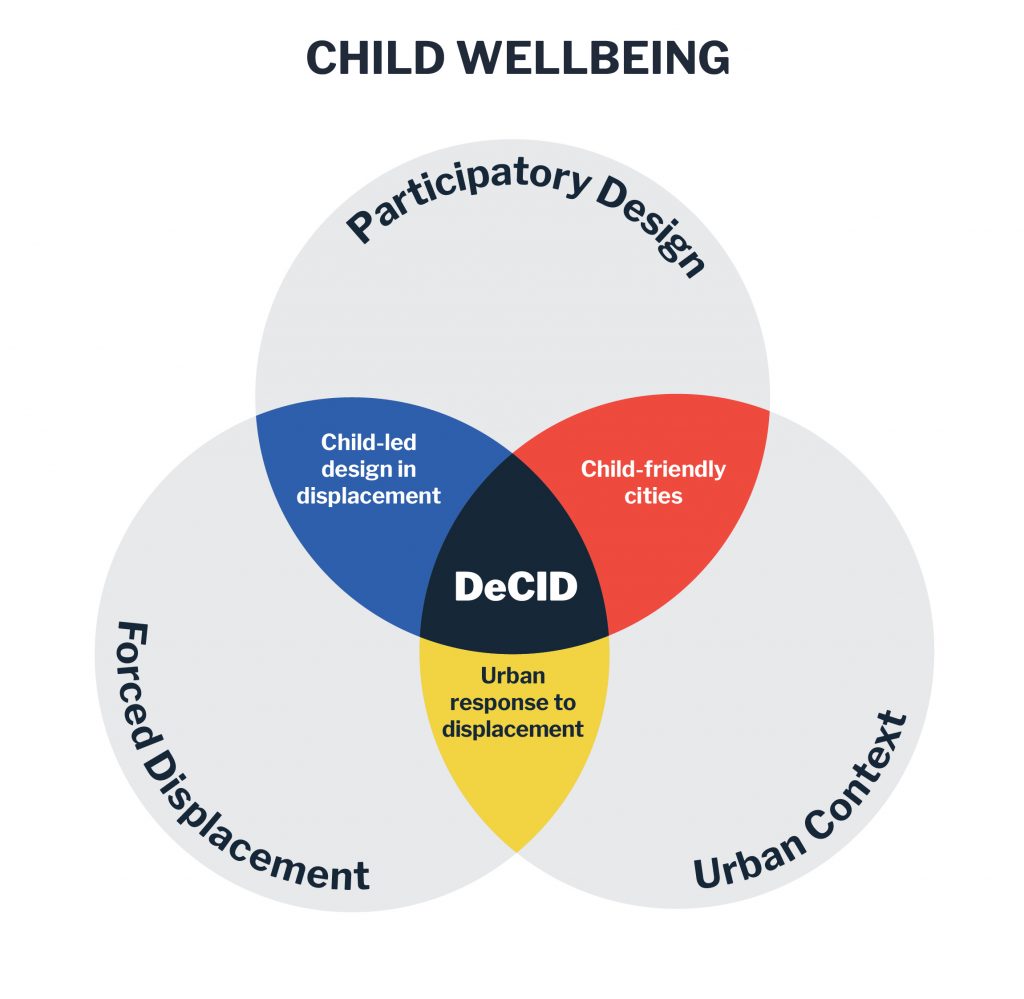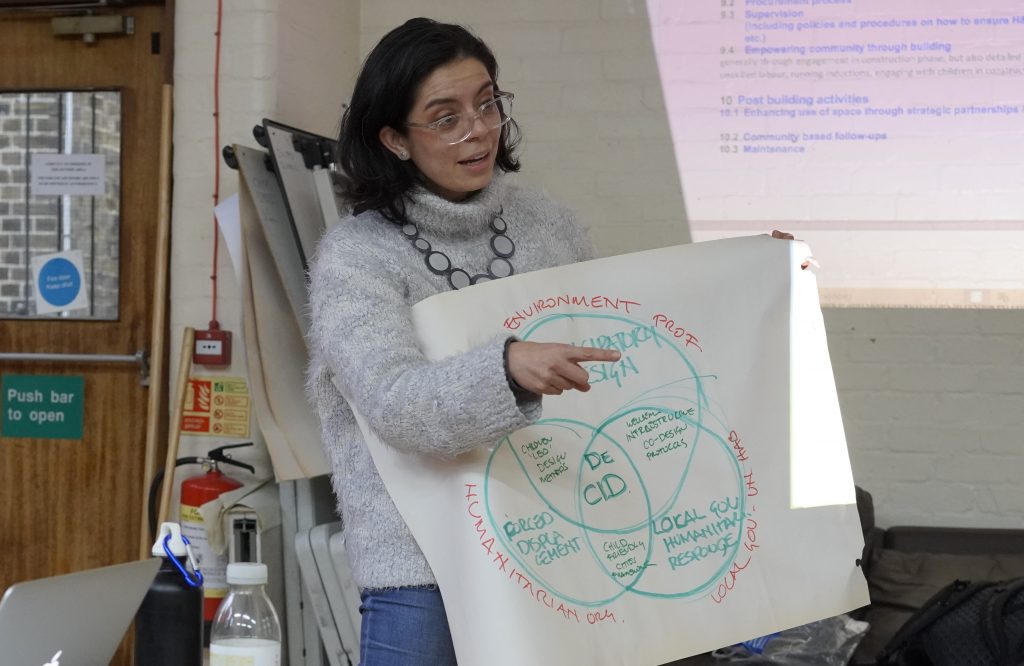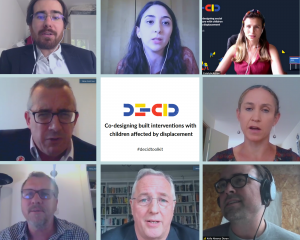To initiate the DeCID project´s research collaboration, project investigators, researchers and academics met for a collective analysis session to discuss gaps in the research, areas for further investigation and strategies for the DeCID main output, the toolkit for participatory design with children affected by displacement.
Project Investigators Dr Andrea Rigon, Joana Dabaj and Riccardo Conti from CatalyticAction, and Researchers Rawya Khodor, Sandra El Gemayel and Armando Caroca Fernandez discussed gaps in the literature, in particular on how the built environment has a clear impact on child development and wellbeing, and how spaces are better designed when engaging children in the design process. The team identified a lot of evidence on the benefits of children taking part in participatory design processes but found that there was a need for further evidence on how the spaces could be improved when designed with such processes.

The DeCID team further identified the need for improving the quality of evaluation of participatory design processes. Compared to the many creative participatory processes available, a lack of creative processes within the field of evaluation were identified. Also, the challenges of attribution, which are widely acknowledged in the field, were discussed for identifying the long-term impacts of participatory processes. The impact of participatory design processes, and how local practitioners approach the diversity of children within participatory design processes were further identified as two areas that required further research and investigation within the DeCID project.
The DeCID team was also grateful to receive the input from established academics from The Bartlett School of Planning at University College London, Dr Catalina Ortiz, Prof Camillo Boano, Dr Alexandre Apsan Frediani and Dr Pablo Sendra who has recently completed a toolkit entitled “Community-Led Regeneration: A Toolkit for Residents and Planners.” They provided useful feedback on the need to tailor the toolkit to different audiences, to include case studies to provide practical examples of the toolkit on the ground, and to offer a glossary and guidelines on the ethics of working with children.
As the DeCID project is a partnership between The Bartlett Development Planning Unit (DPU) at UCL and UK charity Catalytic Action, the toolkit will combine the academic expertise of DPU with CatalyticAction´s practical experience of implementing strategic and innovative spatial interventions in Lebanon since 2014.
We thank all who participated in this initial process for your time, input and dedication!



